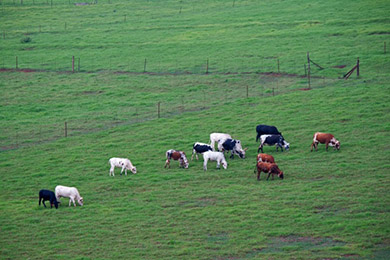Research on Assessing the Livelihood Vulnerability of Herders to Changing Climate in Chui Oblast, Kyrgyz Republic analyzed the livelihood vulnerability of herders in the pilot region of Chui Oblast in Kyrgyzstan.
Sensitivity, adaptability, and exposure were the main categories of analysis, where the dependency on natural resources showed the highest vulnerability in all four pilot village districts. Climate change and disaster vulnerability was relatively low, with extreme weather events such as droughts and snowstorms being the only climate-related disasters mentioned. With rising temperatures and more extreme changes, this delicate system, which is so dependent on the availability of natural resources, it is likely that the exposure sensitivity will increase.
The required actions to secure pastoralists’ livelihoods and ensure sustainable land use at the same time are manifold and long. If the available resources are managed and monitored responsibly, the exposure sensitivity might not increase dramatically over the course of rising temperatures. However, the situation is fragile, and a diversification of income sources may contribute to decreased headers vulnerability towards climate change in Kyrgyzstan.
The full text of the assessment is available at https://www.mdpi.com/2073-445X/12/8/1520?fbclid=IwAR2J7yVQbg80E-yoAgJ6Qin179WWSV62HnhYuubIKJA6-jYR8qBC8nPxNek

